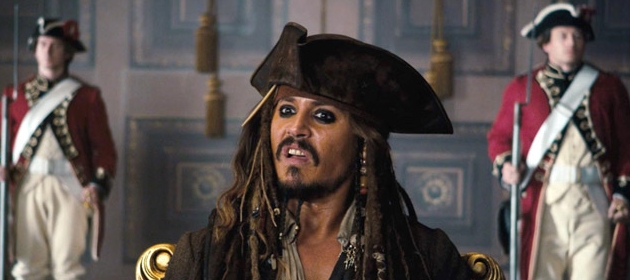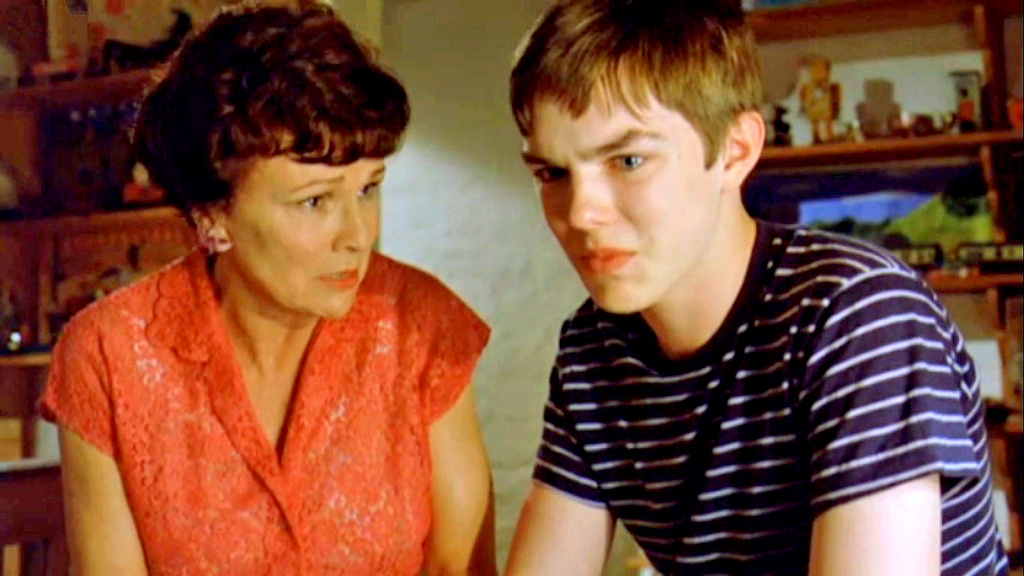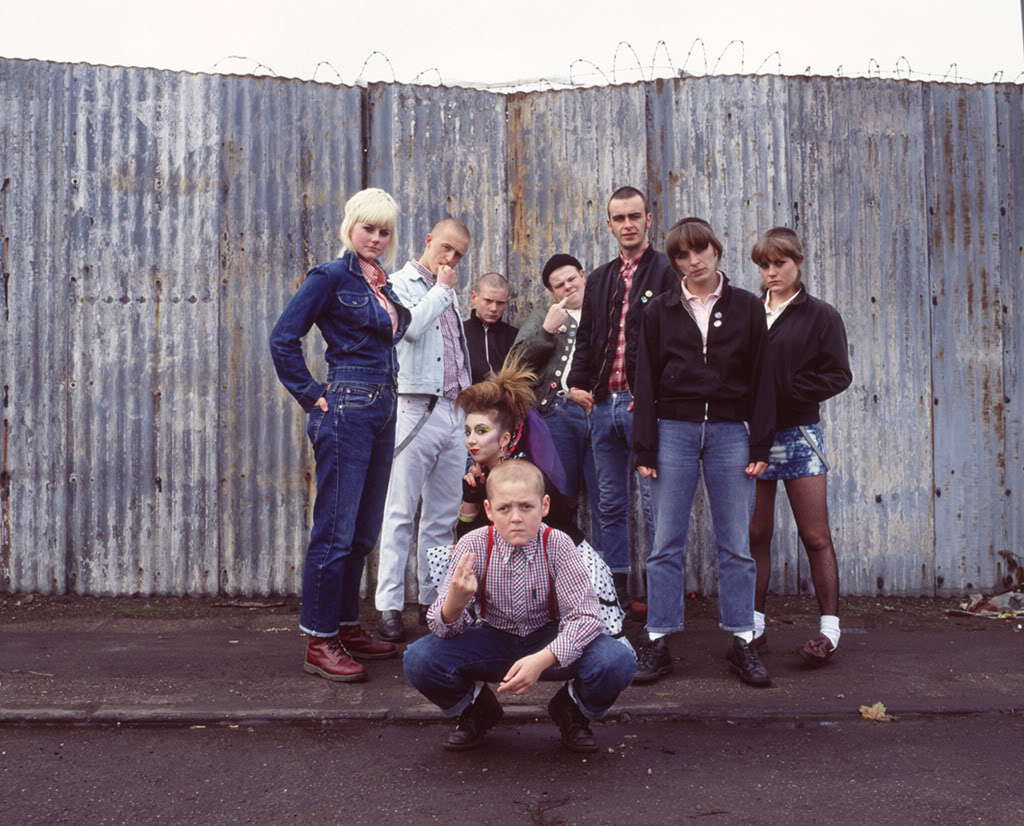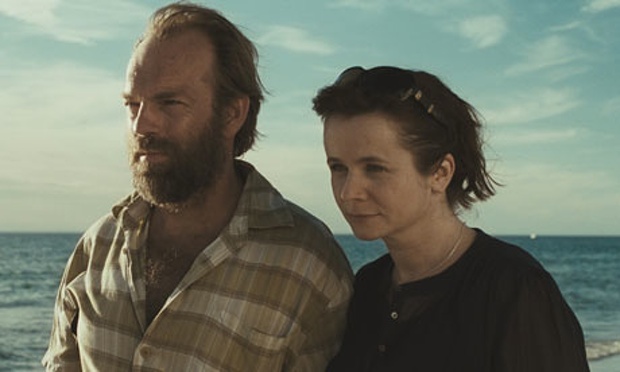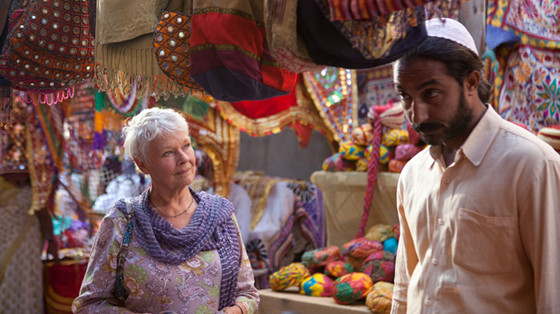6. Pirates of the Caribbean (Gore Verbinkski, 2003)
The film that cemented Johnny Depp as a superstar, Pirates of the Caribbean offers a very different understanding of British colonialism. Primarily, this is because Pirates of the Caribbean, a film whose basic plot is based on a Disneyland rollercoaster, couldn’t be more American unless it was distributed in a box covered in stars, stripes and bullet holes.
Therefore the vision of the colonies we are subject to is a million miles from the Raj Revivalism. The British are only included as a necessary backdrop to pirates. Whereas other films in this list represent an obsession or concern for the Empire, here there is no such interest.
It’s interesting how one of the most successful franchises, from one of the most successful companies in the world, presents the Empire. Disney’s British Empire is by no means malicious or evil. Verbinkski’s villains are pirates, rather than colonial oppressors.
Yet nor are the colonialists presented as benevolent heroes and saviours, a viewpoint more popular within the British rank and file. Instead, Britain’s colonists are presented as buffoons, comedic devices that often serve to fulfill the role of straight man to Depp’s comic turn.
7. Wah Wah (Richard E. Grant, 2005)
Richard E. Grant’s loosely autobiographical film follows him as a child growing up in Swaziland. The film covers a range of difficult events in his adolescence, beginning with the adultery of his mother (Miranda Richardson) with his father’s best friend. The film then follows the young Grant as his father (Gabriel Byrne), re-marries and starts a life with Ruby (Emily Watson), amid a descent into alcoholism.
Set in 1969, as Swaziland was being granted independence, Wah Wah offers a very limited insight into what was a fascinating time as the country regained independence from colonisers. There is little to no discussion of natives living and working in Swaziland beyond the family’s servants, who are seen to be upbeat and constantly smiling, all of which might suggest a continuation of the colonial revivalism of the 1980’s.
Yet there are elements of interest within the film worth unpicking. Chiefly that the incumbent colonialists are generally mocked throughout the film, the title ‘Wah Wah’ a reference to Ruby’s vitriolic imitation of the aristocratic accent. Grant’s father, amongst others, is portrayed as far more progressive than many, spending his time with ‘common’ white people, as well as providing leave for one of the servants to sing in the community musical.
Although by no means anything approaching a critique of the British Empire, Wah Wah does represent a slight shift, even if that shift does involve a change in attitude from out-and-out romance to simply out-of-date racism.
8. This is England (Shane Meadows, 2006)
Arguably Meadows’ finest hour and certainly his most popular work to date, This Is England was released to huge controversy. Certified 18 by the British Film Board, Shane Meadows responded with outrage, arguing ‘the film is unavailable to the people who need it most’.
The film is unescapably wrapped in post-colonial Britain. The film explores the skin-head culture in working class, Thatcherite Britain. It begins with eleven-year-old Shaun, another protagonist loosely based on the writer/director, being taunted about his father who had recently been killed in the Falklands War, Britain’s final attempt at maintaining a former colony. On his escape from the school playground, he meets a young group of skinheads who invite him into their gang.
Meadows’ has since discussed that ‘skinheads had grown out of working class English lads working side by side with West Indians…this was where the whole skinhead thing came from – it was inherently multicultural’. This ties in with the argument proposed by Gilroy, that a steady integration of culture from previous colonies are beginning to shape a new post-colonial identity within Britain.
After the introduction of neo-nazi Combo, many members of the gang are radicalised, aligning themselves with the political agenda laid out by the far-right politics of the National Front, with the storyline of Milky, the only member of the gang with West Indian heritage, particularly significant, as well as the discussion of an anti-immigration manifesto taking over the consciousness of a disenfranchised working class youth.
9. Oranges and Sunshine (Jim Loach, 2010)
Stretching out across Asia, whilst also casting its shadow across much of Africa, it’s easy to forget that what is now known as Australia also for a long time fell under the remit of the British Empire. Oranges and Sunshine focuses on a definite low in British history, albeit one beyond the usual criticisms of the colonial mentality.
It tells the story of social worker Margaret Humphreys and offers a second appearance in this list to Emily Watson, admittedly in a wildly different depiction of colonialism. Although not primarily concerned with colonialism in the height of the British Empire, it offers a study of ‘Home Children’, unquestionably a low ebb in British history.
An exception that proves the rule in terms of British depictions of colonialism, it offers a scathing portrayal of the Empire, focusing on the organised deportation of children in social care to British colonies, primarily to Australia and Canada, a practise that had begun in the nineteenth century and only ceased in the 1970’s.
The inclusion of this film in this list is due to the apology issued by then Prime Minister Gordon Brown shortly before the film’s release. Brown spoke of his regret and remorse at the British Government’s involvement in this practice. This is significant as Britain is a country unable to truly hang its head in shame over much of the Empire, to the extent that when Tony Blair spoke of his sorrow over Britain’s involvement in the Slave Trade in March 2007, he stopped short of a full apology.
10. The Best Exotic Marigold Hotel (John Madden, 2012)
In many ways, this is the best example of how, long after the fall of the Raj, the British Empire lives on in the hearts and minds of the British Film Industry. The story follows a group of pensioners who after retirement leave what is presented as the over-priced banality of London in search of a less expensive, more exciting, life in India. With the exception of one married couple, all the characters meet separately, and we follow a variety of highs and lows as they settle into life in a crumbling Indian mansion.
The novelist Nikita Lalwani argues the film is ‘an exercise in British wish-fulfilment’. She highlights the status of the English pensioners, who by the end of the film are required to intervene to save the business and love-life of a well-meaning, yet ultimately unintelligent, Indian owner. Similarly, she points to the various discrepancies from the book ‘These Foolish Things’, upon which the film was based. In the book, the hotel isn’t a crumbling palace in Jaipur, but a smart, modern complex in Bangalore.
The film in essence presents a modern day re-telling of a paternal, gentle and kind form of colonialism, whilst continuing to cater for a sense of nostalgia, warmth and comfort within an understanding of the British Empire.
